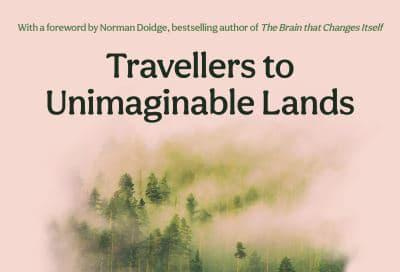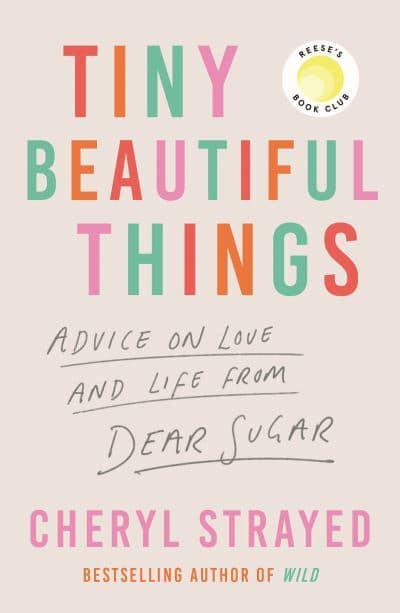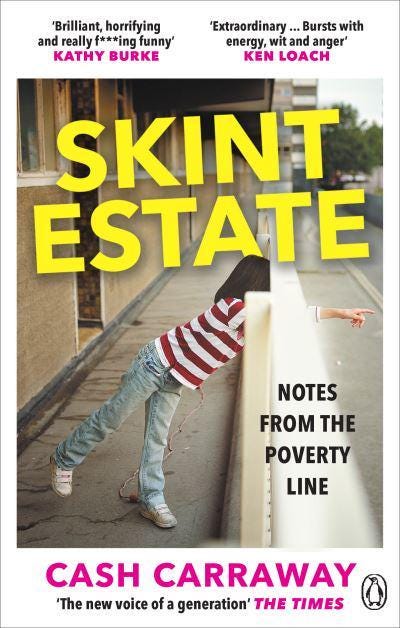Which Books Should You Be Buying This Week
Your round-up of the newspaper book reviews March 25/26
Ooh, so much to tell you about this weekend, so let’s get straight to it. I spent Friday night binge-watching Daisy Jones and The Six, I wasn’t sure why, I hadn’t read any particularly favourable reviews, but I really enjoyed it. I mentioned it a couple of weeks ago in this review because, even though the book is not new, it’s a book that suddenly people are talking about, and if, having watched the series yourself, you’d now like to read the book (which reviewers say is fleshed out with much more emotion) then you can buy DAISY JONES AND THE SIX here.
However, the reason I’m reminding you of this it is because two other books were mentioned in the newspapers this weekend which, if you visited my pop-up bookshop, might have rung a bell or two. First up, there was an interview in The Sunday Times Style section with Cheryl Strayed. Most people know Strayed from her book – and later film staring Reece Witherspoon – WILD, but before the fame from all that, Cheryl Strayed was an agony aunt and she published a book of her advice columns called TINY BEAUTIFUL THINGS. This was a book that myself and my friends were obsessed with in our early thirties because the columns spoke to us all in so many different ways. I remember in the early days of What’s App pinging screenshots back and forth from its pages, the life advice was just so spot on.
TINY BEAUTIFUL THINGS has now transformed into a TV series and a bit like Daisy Jones And The Six, it looks from the trailer like some easy-watching fun. The series is loosely based on the advice columns and its production saw Strayed reunited with Reece Witherspoon and Laura Dern who were executive producers (Dern also received a best supporting actress nomination for her portrayal of Strayed mother in Wild).
Strayed advice column, Dear Sugar, secured her a cult following, the reason being that not only did she hear other people’s problems, but her way of letting them know she truly empathised was to share so much of her own life too.
“When you tell the truth about who you are, other people see themselves in you and feel a little more liberated to, if not tell their truth, to at least acknowledge it,” Strayed told The Sunday Times.
Who knows if the series will be a hit, but I can guarantee you’ll enjoy the book, and that’s why I stocked TINY BEAUTIFUL THINGS in my pop-up, and you can buy it here.
Next up, an interview with Daisy May Cooper in The Observer’s New Review, the reason being that the creator and star of This Country (if you haven’t watched it, put down this newsletter and head to BBC iPlayer this minute), is now playing the lead in BBC/HBO show Rain Dogs, written by SKINT ESTATE author Cash Carraway. This was another book that had pride of place in my pop-up book shop and was part of EMMA FORREST’S CURATION of books by women writing on obsession.
Michael Hogan interviewing Cooper for the New Review asked her to tell him about Rain Dogs and what attracted her to the role:
“[It’s about] a single mum who’s struggling to become a writer while living in dire poverty, trying to stay sober and trying to be a good parent. Except if one thing’s going right, she’s failing at the others. That’s the only way I can describe Rain Dogs because it’s a complete one-off. It’s so beautifully written by Cash Carraway, I had to say yes. I connected with her memoir SKINT ESTATE on so many levels. Growing up in poverty is such a bloody ball-ache. Money doesn’t buy happiness but it gives you options. Not having money is like playing a constant game of chess. You think: ‘If I spend my money on tampons, that means I have to choose between getting food or taking the bus.’ You have to plan ahead all the time and it’s exhausting. Rain Dogs captures all that… imagine having a heroin addiction on top of that. If you don’t get a tenner by the end of the day, you’ll be going cold turkey. The stress of it. It’s a nightmare I wouldn’t wish on anyone. Yet in this country, it’s worse than ever. People are being forced to use food banks who shouldn’t be. Cash Carraway totally gets that because she’s lived it. She writes from the heart and says it how it is.”
Rain Dogs starts on BBC One on April 4, but if you’d like to get ahead of the crowd, you can buy SKINT ESTATE here.
What next? Oh yes, a book I have mentioned in previous newsletters that I read and loved a couple of months ago is finally due for release and featured in many newspaper reviews this weekend. ARRANGEMENTS IN BLUE by Amy Key is a book about being single. Well, no, it’s a book about more than that. It’s a book about spending your life single, of endlessly chasing what it appears that everyone else in the world has so easily got, that other hand in yours. Well, no, it’s about more than that too, it’s about expectation versus reality, it’s about coming to terms with the disparity between the two, it’s about making the most of that, it’s about embracing the disappointment and focusing instead on what life does have to offer and wondering how real that other dream that you were ‘meant to be living’ was in the first place. It’s about acceptance of not only reality, but yourself. And it’s all contained in a slim little book of around 200-odd pages and set to a walkthrough of Joni Mitchell’s Blue album. Quite some feat, huh? I really loved it, hence why I flagged it up to you lot a couple of months ago, but let’s have a look at what the critics have to say.
Laura Hackett writing in the Sunday Times Culture section wrote: “The poet Amy Key’s first book might be the most hyped memoir of 2023 (or at least a close second to SPARE). ARRANGEMENTS IN BLUE has been praised by Sarah Perry for it’s ‘courage and style’, by Megan Nolan for being ‘beautiful and important’ and even by Lisa McGee, the Derry Girls creator, who called it ‘profound and poetic’. Key deserves their accolades.”
Emma John reviewing for The Observer described it as a ‘cathartic meditation on singledom.’
“Key last had a boyfriend when she was 22 years old; today she is 44. There have been encounters – brief liaisons, unrequited passions, even a distressing affair with someone else’s husband – but nothing has stuck. She is on a lonely road and she is travelling… her nonfiction debut is a courageously honest meditation on her partnerless life, and her inward and outward search for all the things a soulmate was supposed to deliver.
“As the book progresses, it becomes clear that Key’s deeply introspective quest is not just a hunt for what’s missing, but for what she has overlooked. As she rightly points out, while society has opened itself up to “endless variations of romantic and sexual identity”, it still privileges romance above every other form of human love. Our traditional milestones, from marriage to parenthood, are all associated with it. Those of us who have yet to find our person are seemingly abandoned to “infernal adolescence” – house-sharing with strangers, assigned the air mattress on holiday – or, in Key’s case, an “almost household” of beloved objects and cats that stand in for the usual signifiers of adulthood.
“We are sold singleness as a temporary, limbo state. For those for whom it lasts, an accommodation must be reached with the stigma, the sense of failure, the grief for a life not lived. There is plenty of catharsis in Key’s language, but there is celebration in her discoveries also.”
You can buy ARRANGEMENTS IN BLUE here.
Taking a huge handbrake turn now, I read a review in the Saturday Guardian of a new book about dementia, and having penned two myself as co-author to Wendy Mitchell and her Sunday Times bestselling memoirs SOMEBODY I USED TO KNOW and WHAT I WISH PEOPLE KNEW ABOUT DEMENTIA, I found this one super interesting to read about.
TRAVELLERS TO UNIMAGINABLE LANDS – DEMENTIA, CARERS AND THE HIDDEN WORKINGS OF THE MIND is a book by clinical psychologist Dasha Kiper and is written from the point of view of the carer. It’s interesting because someone wrote to me the other day (apologies if you’re reading this as I’m realising with horror now I didn’t get back to you) saying that she would like to see a book from the carer’s point of view, or at least one that was filled with various tips from those people who are caring for those living with dementia. When Wendy and I joined forces in late 2016 to create her first memoir SOMEBODY I USED TO KNOW if was for the reason that no book had been written by someone with dementia, only by people caring for them. And so, it seems we have come full circle again.
The review of TRAVELLERS TO UNIMAGINABLE LANDS starts with a story featured in the book of a husband and wife enjoying dinner and a glass of G&T at a restaurant near their home: ‘as the time to leave this regular date draws near, he bids her farewell and she, in practised response, surrepticiously changes her dressy shoes to trainers so that she can rush hom to arrive before he does.’ This man clearly does not recognise this woman as his wife, but his mistress. And she plays along presumably just to continue her part in their shared life. It is a story I have heard time and again.
This book focuses on stories such as these, but to explain dementia from a caregiver’s point of view in its most raw and uncomfortable form, but to do that Kiper explains what the disease does to a ‘healthy brain’.
“Kiper marshalls her scientific evidence with extreme care to make the case that the ‘healthy’ brain will inevitably founder when confronted with a mind that is fracturing,” writes Alex Clark, reviewing. “We default to making sense of what we see, to building relationships on the basis of a shared reality, to believing in an essential self that, even when threatend by deterioration, persists. When, for example, a patient appears to understand perfectly well what is happening around them, or when they exhibit behaviour strongly suggestive of a personality we know, we are geared to fill in the gaps, to keep the show on the road; when that fails, we might become frightened, filled with grief and rejection, bewildered.”
Clark describes TRAVELLERS TO UNIMAGINABLE LANDS as ‘a work of exceptional compassion’.
“Kiper attempts to show caregivers that their reactions – of anger, frustration, disbelief, isolation, immense sadness – are not merely understandable but a function of their own brain’s operations. It is also a deeply imaginative response to that ‘unimaginable’ territory which must, somehow, be navigated. Anyone on that journey will surely find this book immeasurably valuable.”
You can buy TRAVELLERS TO UNIMAGINABLE LANDS here and it has a rather beautiful cover too.
The last book I wanted to mention today was not one I might ordinarily be inspired to put in this newsletter but well, here goes. Paris Hilton has an autobiography out, and its title is just so original I couldn’t possibly not mention it – PARIS: THE MEMOIR.
I’m joking of course, but actually, all jokes aside, this book does sound quite an interesting – and at times devastating – read. I can’t say I’m all that taken by celebrities, preferring ‘real people’ and their experiences, but sometimes you can forget that celebrities are real people too and their experiences, perhaps, because of where they came from, can be quite extraordinary.
For example, because I had no interest in Hilton, I had no idea of the horrendous childhood experiences she had suffered just assuming, like many, that as the heiress of the Hilton Hotel empire she was a spoilt little princess. Sarah Ditum reviewing PARIS: THE MEMOIR for The Sunday Times writes about what else happened to her:
“Her childhood was spent, she writes in a ‘tupperware container of love and privilege’, sheltered by her parents, Kathy and Rick, lavishing her affection on an array of pets… school though was more challenging. She got in trouble with her teachers for being distractible (an ADHD symptom) and attracted the attention of bullies. In eighth grade, when she was 12 or 13, she was groomed by a teacher at her Catholic school. In a pattern that would be repeated throughout her life, the punishment fell not on him but on her, and she was left in no doubt that she was unwanted there… At high school she recovered her confidence – but it was shattered again when a man in his twenties drugged and raped her…” and it wasn’t long after that, unsurprisingly, she started acting out and became the Paris we were used to seeing through the lens of the media.
But before that there was an era of ‘tough love’ enacted on her by her parents:
“…when she was 15, two men burst into her bedroom. ‘A thick hand grabbed my ankle and dragged me off the mattress,’ she recalls. ‘I’m about to be raped. I’m about to be murdered.’ Her supposed kidnappers, though, were sent by her parents, who believed only drastic measures could save their daughter.”
Er, what?!
After that she was detained in various ‘unspeakable’ institutions until she was 18 where she was subjected to corporal punishment and ‘body cavity searches.’
I have that famous Philip Larkin quote going round my head right now… ‘…they may not mean to, but they do.’
We perhaps have a tendency to believe that people with money have a much easier existence than the rest of us. I would suggest this book might fly in the face of that.
If you would like to buy PARIS: THE MEMOIR, you can do so here.
I had been excited about the clocks going forward and promised you last week you’d receive this newsletter while it was still light outside, didn’t quite make that as I’ve been having a bit of a spring clean today, but I hope you’ve found something to interest you here.
Here’s to the sunny evenings ahead of us now…
Don’t forget you get ten per cent of all books in my book shop by buying a gift subscription to The Book Room
• Thank you to all who have been ordering from my online bookshop in the last week. Remember you can still support THE BOOK ROOM while I am waiting to open my physical store again by shopping online, in fact now I would appreciate the support more than ever. I can order ANY BOOK for you and you will receive it within 48 hours. It has never been a more important time to support both writers and independents bookshops, and by buying from me, you are doing both and contributing to a vital ecosystem.








